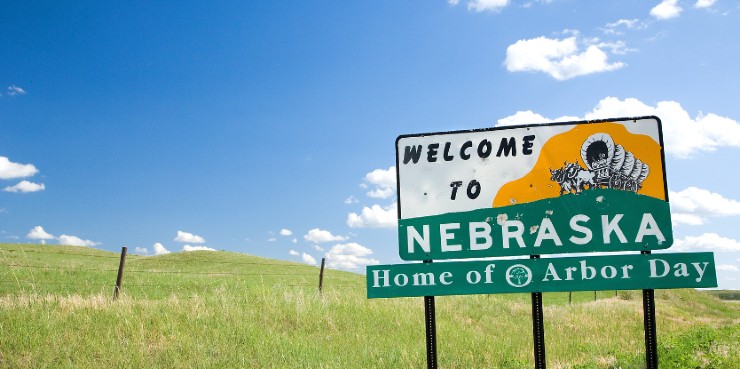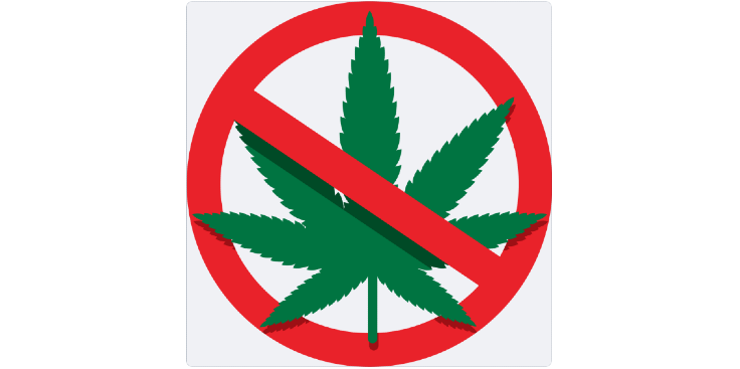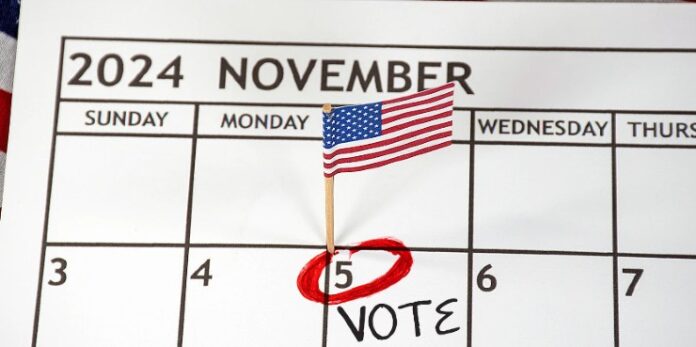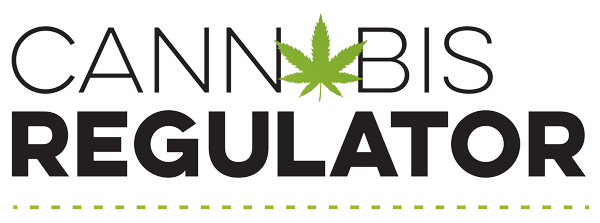The election results are in, and the entire country is split between celebrating a win and recovering from a loss. Republican candidate Donald Trump has now been re-elected as the President of the United States.
On a Federal level, how will another Trump presidency and the election’s Congressional changes impact the cannabis industry?
Luckily, he has expressed his support for pro-marijuana legislation in the months leading up to Election Day, saying back in August, “As we legalize it (marijuana) throughout the country … it’s awfully hard to have people all over the jails that are in jail right now for something that’s legal.”
Marijuana was also on the ballot in four states: Nebraska (medical cannabis), North Dakota (adult-use legalization), South Dakota (adult-use legalization), Florida (adult-use legalization) and Massachusetts (psychedelics legalization).
Were voters in these states in favor of marijuana and psychedelics? What does Trump’s presidency mean for the industry as a whole? We break down and answer questions you may have below.

Nebraska Election Results
Nebraska voters approved ballot initiatives to legalize medical cannabis!
Nebraskans for Medical Marijuana spearheaded the campaign to place two companion medical cannabis measures on the ballot, according to Marijuana Policy Project. Initiative Measure 437 will protect patients with serious health conditions and their caregivers from arrest for the use of medical cannabis as recommended by a healthcare provider.
Meanwhile, Initiative Measure 438 will establish a Nebraska Medical Cannabis Commission to regulate the manufacture, distribution, delivery and dispensing of cannabis for medical purposes by registered private entities.
David Craig, chief marketing officer of Illicit Gardens, comments on the victory: “We applaud the citizens of Nebraska for embracing this significant change. Legalizing medical cannabis opens the door to numerous opportunities—from boosting the state’s economy to rectifying long-standing social injustices related to cannabis prohibition. The cannabis industry is eager to collaborate with state officials, businesses and community organizations to ensure the responsible and effective implementation of the new law.”
Agreeing with Craig is Gurpreet (Pete) Sahani, CEO at The Blinc Group.
“The legalization of medical cannabis in Nebraska is a monumental step forward for the state,” he says. “It will not only generate significant tax revenue for essential services like education and infrastructure but also relieve the criminal justice system of low-level cannabis offenses. With this new framework, Nebraska can establish a well-regulated market that prioritizes safety and accountability while offering a pathway to expungement for past cannabis-related offenses, rectifying past injustices.”

North Dakota, South Dakota and Florida Election Results
The hopes of a national movement to legalize recreational marijuana use and possession in red states fell short first in Florida. North Dakota and South Dakota legalization measures also failed.
Ricky Williams, former NFL running back for the Miami Dolphins and founder of Highsman, comments on the state’s loss: “I know what it’s like to lose something over cannabis. I lost time in my career and I lost respect from people who didn’t get it. This vote not passing is frustrating, but it’s just another step in the journey. The movement for cannabis reform is only growing, and we’ll keep pushing until everyone’s ready to catch up.”
In regards to the loss in North Dakota, Louis Samuel, CEO of Golden State Canna, says, “For the third time the voters of North Dakota have decided that the nickname they hold on their license plates, ‘The Peace Garden State’ excludes the plant more associated with peace than any other. Measure 5 provided an opportunity to overcome past failures of initiative and increase liberty in the state, but instead the voters of North Dakota have chosen to place tradition over progress and keep a shadow over their garden.”
Commenting on South Dakota’s loss, Ray DeSabato, CEO of Chorus, says, “Given South Dakota’s traditionally restrictive nature to marijuana, it’s unsurprising that this measure failed. Cannabis access is still limited to medical patients and many will continue to seek and secure a medical license. To safeguard patient health and meet growing demand, cultivators must adopt more effective, scalable and proactive technologies for prevention, disinfection and contaminant regulation.”
Massachusetts Election Results
Massachusetts voters were also not in favor of legalizing psychedelics.
“Although we are disappointed in the decision to not legalize psilocybin and other psychedelic compounds to enable psychedelic-assisted therapy in Massachusetts, we remain confident in a legal pathway to implement life-changing treatments in the state and across the country,” Cody Shandraw, president and co-founder of Healing Realty Trust, says.
Shandraw notes that Healing Realty Trust will continue to support the administration of FDA-approved therapies by working with different providers, such as Cambridge Biotherapies. This organization offers patient-focused treatments for mood and anxiety disorders using ketamine infusion, Spravato, TMS, medication management, psychotherapy and ketamine-assisted psychotherapy.
What Trump’s Re-election Means for Cannabis
Both candidates committed to making progress on cannabis reform. Now that President Trump is back in office, Brendan McKee, co-founder, CFO and COO of Silver Therapeutics, notes that it’s crucial he and his administration work toward fulfilling those promises.
“Specifically, we’re looking for action on federal legalization, SAFE Banking and, most importantly, efforts to release those incarcerated for non-violent cannabis offenses,” he says.
Marc Rodriguez, founder and CEO of Green Leaf Business Solutions, predicts that the Trump administration may continue to leave cannabis legalization largely to individual states, with limited federal intervention.
“This approach could slow the pace of federal cannabis reform, creating uncertainty that may limit cannabis-related employment and job growth, especially in states that have yet to legalize cannabis or in banking and interstate commerce sectors that rely on clear federal guidelines,” he says.











